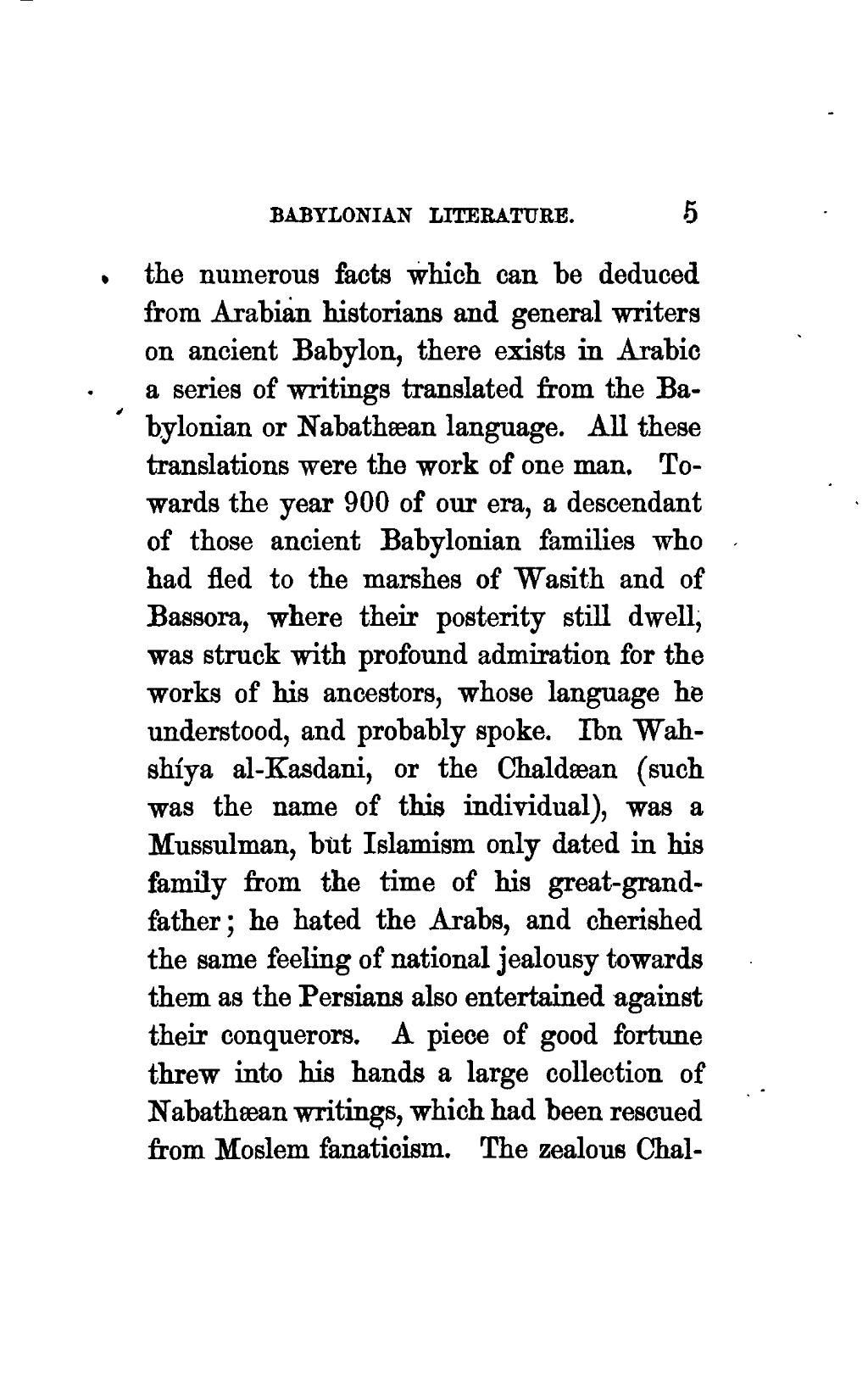the numerous facts which can be deduced from Arabian historians and general writers on ancient Babylon, there exists in Arabic a series of writings translated from the Babylonian or Nabathæan language. All these translations were the work of one man. Towards the year 900 of our era, a descendant of those ancient Babylonian families who had fled to the marshes of Wasith and of Bassora, where their posterity still dwell, was struck with profound admiration for the works of his ancestors, whose language he understood, and probably spoke. Ibn Wahshíya al-Kasdani, or the Chaldæan (such was the name of this individual), was a Mussulman, but Islamism only dated in his family from the time of his great-grandfather; he hated the Arabs, and cherished the same feeling of national jealousy towards them as the Persians also entertained against their conquerors. A piece of good fortune threw into his hands a large collection of Nabathæan writings, which had been rescued from Moslem fanaticism. The zealous Chal-
